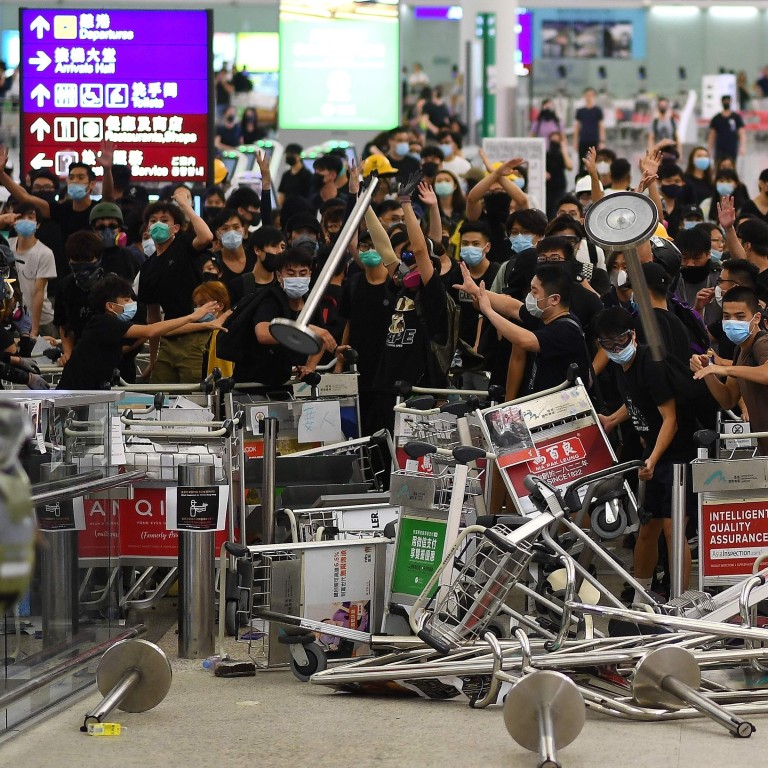
How the Hong Kong protests inspire Macau’s youth – and teach their government to be wary
- Youngsters from Macau are drawn to the demonstrations as their more conservative society lacks an avenue for them to express political views
- The local government has also drawn its lessons from the movement, and is avoiding controversial measures that could cause unrest
The former Portuguese enclave, an hour’s ride by ferry from Hong Kong, has always been seen as the better behaved Special Administrative Region under Chinese rule – largely because of its more conservative society.
While Macau’s youth are not as politically engaged as their counterparts in Hong Kong, a small but increasingly vocal group of youngsters are seeing the protests as a stage to express their grievances and fight for a common cause.
Portugal: a new home for those who fear Hong Kong’s fate?
The political and social turmoil in Hong Kong has also made the Macau government more wary of taking measures that may cause unrest, activists and analysts say.
Wong grew up following Hong Kong politics: “My school in Macau was not particularly conservative, but it did not teach me much about politics … Hong Kong has always been my inspiration.”
He joined a pro-democracy group in Macau, and helped in a campaign for the legislative assembly in 2017. After finishing his degree last year in Hong Kong, he decided to take a job there – but little did he know this year would bring the most serious crisis the city has faced in decades.
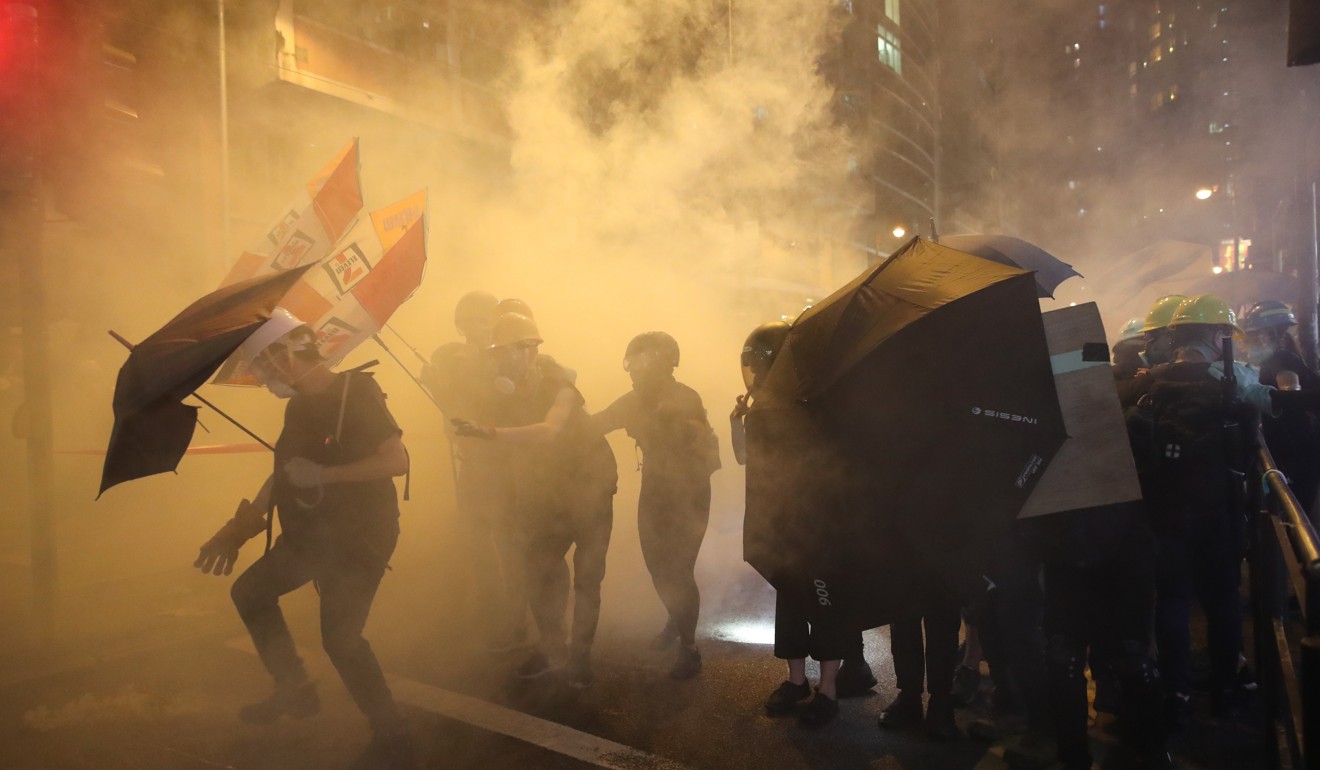
Wong, who now works as an IT technician, has actively taken part in the protests that have shaken the former British colony over the past two months.
“I usually help build barricades by removing fences from the streets,” he says. “I have also helped logistically, like moving materials to the frontline, and also with money, buying more gas masks and taking them to the frontline.”
‘ALIVE IN HONG KONG’
Many Macau residents have criticised the increasing levels of violence at the protests, and support the Hong Kong police – a stance Wong explains by noting their lack of access to balanced sources of information. “They get a lot of false and biased information, and they rarely read about the protesters’ views,” he says.
Why Singaporeans don’t get the Hong Kong protests
The media landscape in Macau is much less vibrant than Hong Kong, with the local government having greater financial control over news outlets. The local Portuguese- and English-language media usually feature more critical views of the government – but these often do not reach the majority of the population, who primarily speak Cantonese or Mandarin.
Still, Wong says the protests are touching the hearts of youngsters in Macau. About 24 per cent of Macau’s population of almost 700,000 are below the age of 24, similar to Hong Kong, where about 22 per cent of the 7 million population are under that age, according to latest available figures.
“Hong Kong values are being introduced in Macau. The young people feel for Hong Kong and that will probably make them more politically engaged,” he says. “I see many friends, who previously showed no interest in politics, sharing news about Hong Kong. But many who care about what is happening have decided to remain quiet.”
Four Macau residents were recently banned from entering Hong Kong, allegedly because they were wearing black T-shirts – the colour associated with the protest movement. According to local media, they claimed they were not in the city to join the demonstrations.
I only feel alive when I am in Hong Kong or in Taiwan
Kuok has experienced tear gas and heatstroke, and was hurt while moving a barricade to block the Cross-Harbour Tunnel. “It does not matter what happens, I will stand with Hong Kong,” she says.
Her participation in the protests also stems from the lack of avenues to express her views in Macau.
“In Macau, if you protest or if you openly support the movement, you will probably lose your job, receive threats and be watched by the police … It’s quite painful for youth like me in Macau,” Kuok says. “I only feel alive when I am in Hong Kong or in Taiwan.”
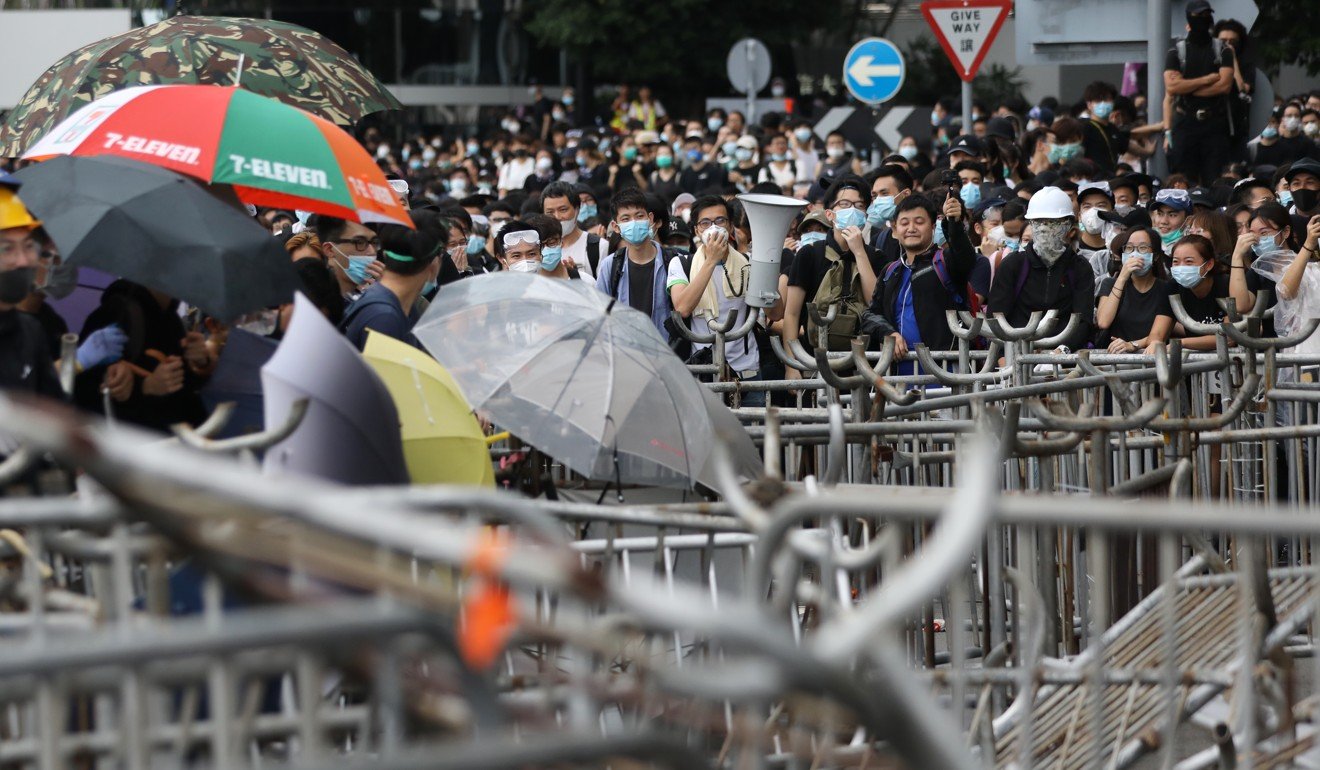
Chao, who used to lead the pro-democracy New Macau Association group, has been detained multiple times in Macau and faced charges because of his political activities there.
He laments that democracy and fundamental rights don’t seem to be priorities for people in his hometown. Chao attributes this to the failings of the education system and the absence of a meritocratic culture, as well as to the city’s economic structure, which leaves youngsters with two main options: working for the government or joining the casino industry, the city’s main source of revenue.
Hong Kong protests to Uygur camps: Chinese students are scorned
“It’s a sad atmosphere in Macau for those who cherish freedom of expression,” Chao says. He says he is unlikely to return to the former Portuguese colony, and predicts that the harassment and intimidation by the authorities in Hong Kong will continue to escalate.
Regardless of the outcome, Chao argues, this “decentralised movement” is already “a lesson of freedom of expression”.
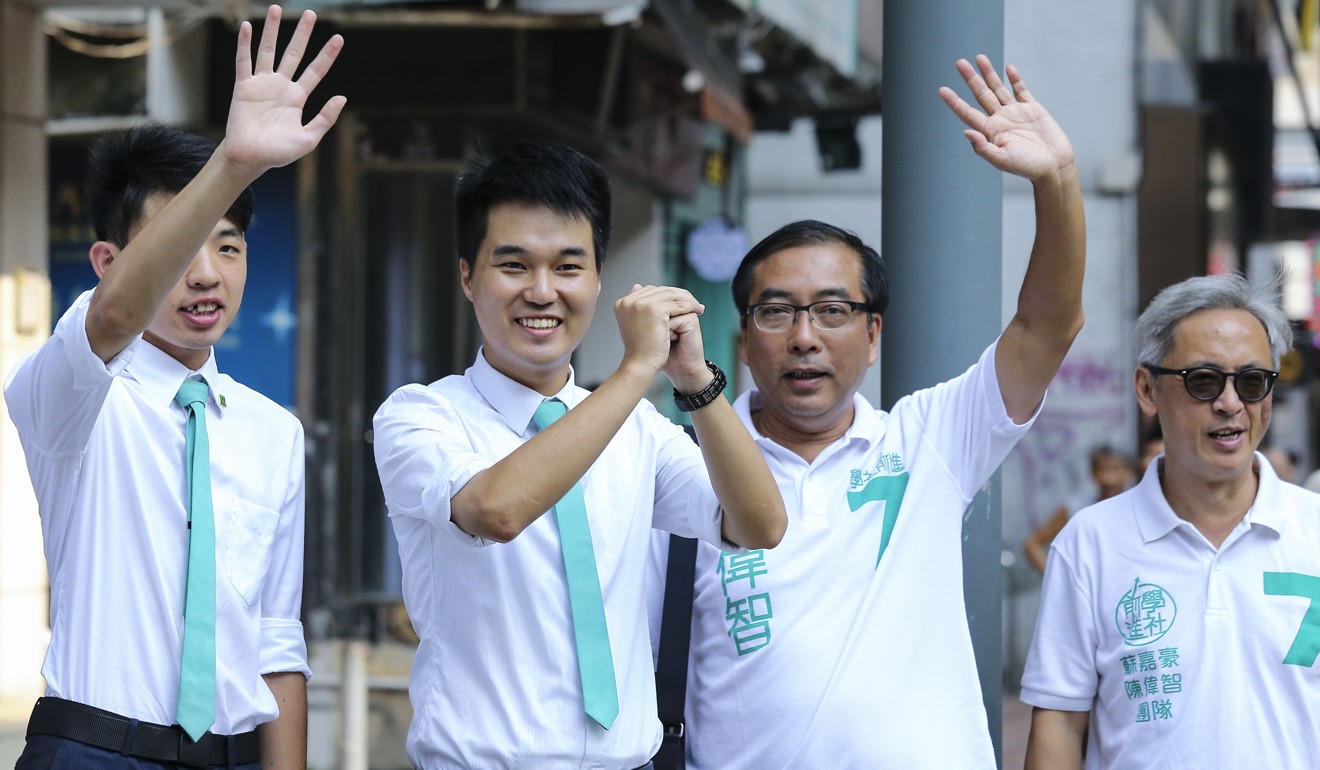
CAUTIOUS GOVERNMENT
Despite having different historical, political and cultural backgrounds, he notes that the two regions share the “same fate”. Sou also argues that the movement in Hong Kong has had a positive impact on the youth of Macau, a city that has less contact with the international community. “It has raised their sense to defend their rights and freedoms.”
In his opinion, increasing threats to Hong Kong’s basic freedoms and rights have led to growing frustration and a divide in society.
“Hong Kong is not the only case in the world where when the government does not meet demands, the level of violence increases,” Sou says, adding that only condemning violence and not offering solutions is not what he expects from a government. “I am very disappointed with the Hong Kong government and Beijing, because that’s all they have done.”
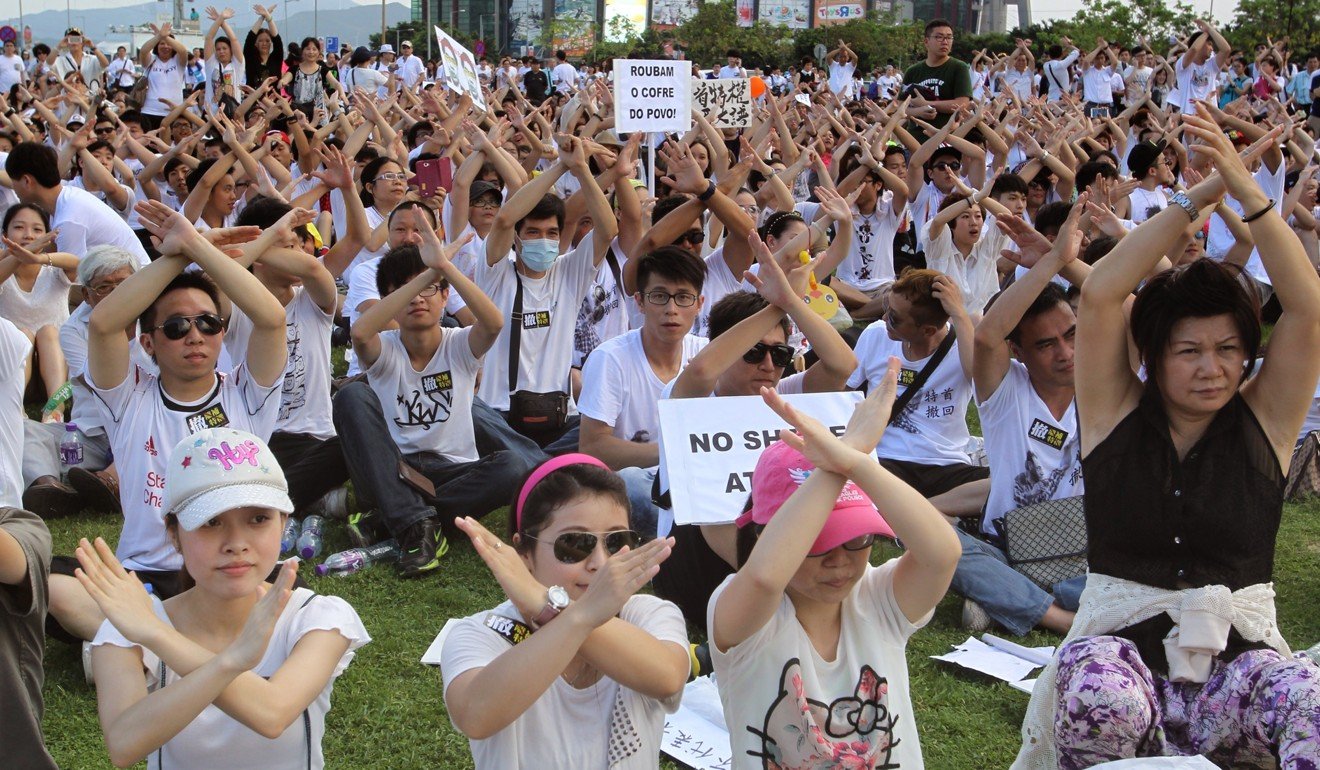
Instead of leaving the issue in the hands of the police or potentially allowing an intervention from the Chinese army, Sou says the Hong Kong government should try to understand why the youth decided to protest the way they have.
Activists and analysts interviewed by This Week in Asia agree that the Macau government has done a better job at responding to public sentiment.
“The political situation in Hong Kong affects the decision-making in Macau and they don’t want any spark that may ignite a fire … The Macau government has been quite ‘clever’, because when there is any hint of unrest or dissatisfaction, itsteps back,” political analyst Larry So Man-yum says. “If the Hong Kong government had done that, there would not be the current political upheaval.”
An extradition law that would allow suspects from Macau to be sent to mainland China and Hong Kong is seen as being on the back burner, at least for now, after the controversy over a similar law in Hong Kong.
Here is where the next revolution may take place in Hong Kong
Asked whether it intended to put the law forward later this year, a spokesman for the Office of the Secretary for Administration and Justice in Macau said the government had “no plans regarding this piece of legislation”.
Earlier this month, the government suspended a controversial bill proposing the transfer of 60 billion patacas (US$7.4 billion) from its financial reserves to set up an investment and development fund, saying it would hear the public before going ahead with the idea.
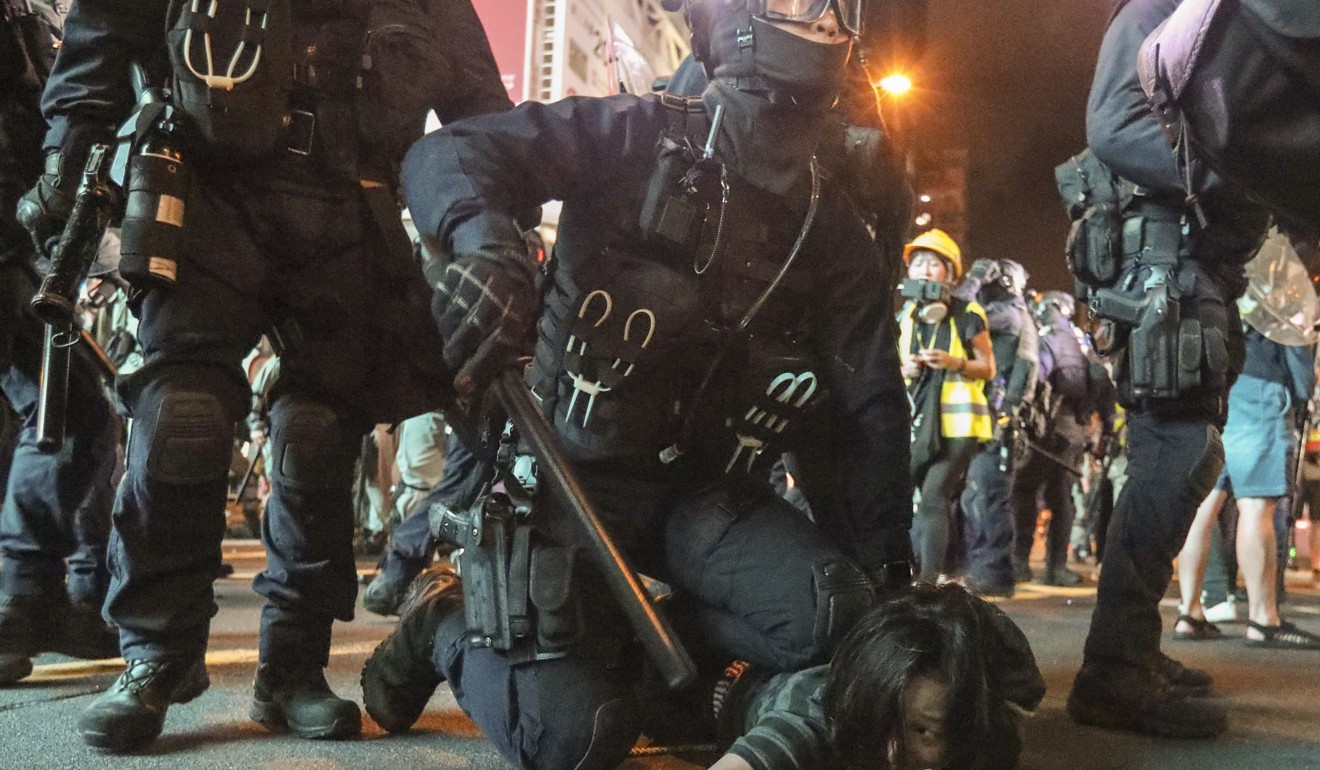
In 2014, the administration dropped a plan to provide lavish retirement packages for the city’s chief executive and top officials after 20,000 people – an unprecedented number – took to the streets in protest.
Wong, the 23-year-old IT technician from Macau, argues that the current protests have little to do with an absence of patriotism.
“This shows how out of touch the Hong Kong, Macau and central governments are,” he says. “It’s not patriotism or the lack of it that led to the Hong Kong protests, rather the oppression Hong Kong people are feeling … It’s not like they don’t love [China]. Some of them, like myself, want to love the country, but the country doesn’t love me back. We are fighting against a regime.”
He also hopes that the Hongkongers’ perception of Macau people can be changed. “Many are critical of Macau people and think that we are just like people in mainland China,” Wong says. “But some people in Macau are actually trying to help Hong Kong.” ■

